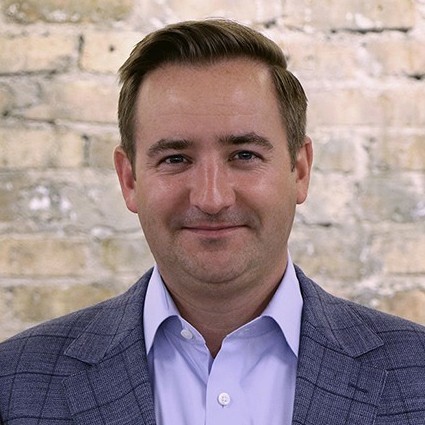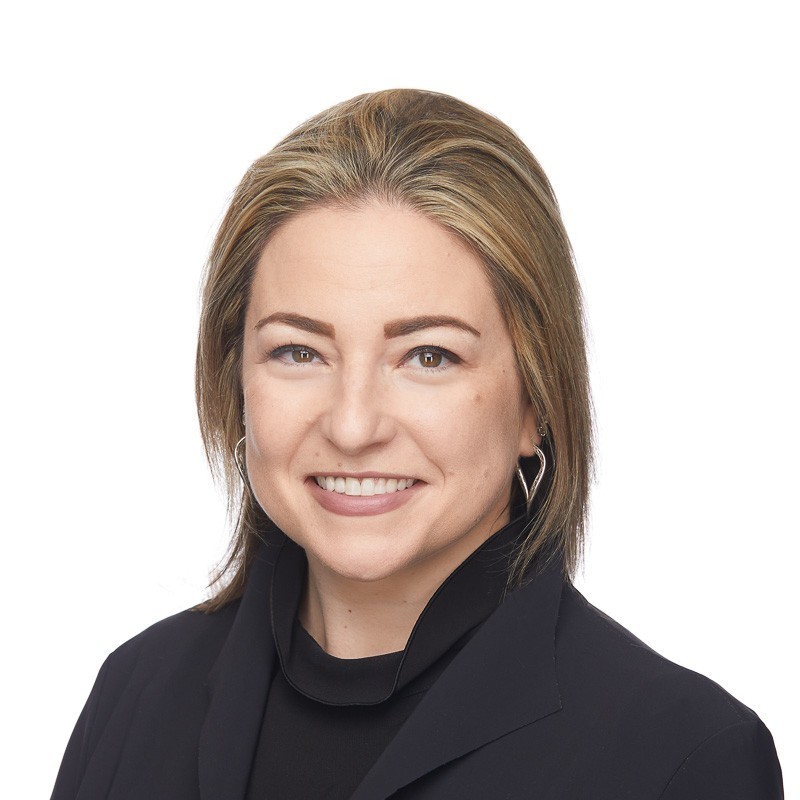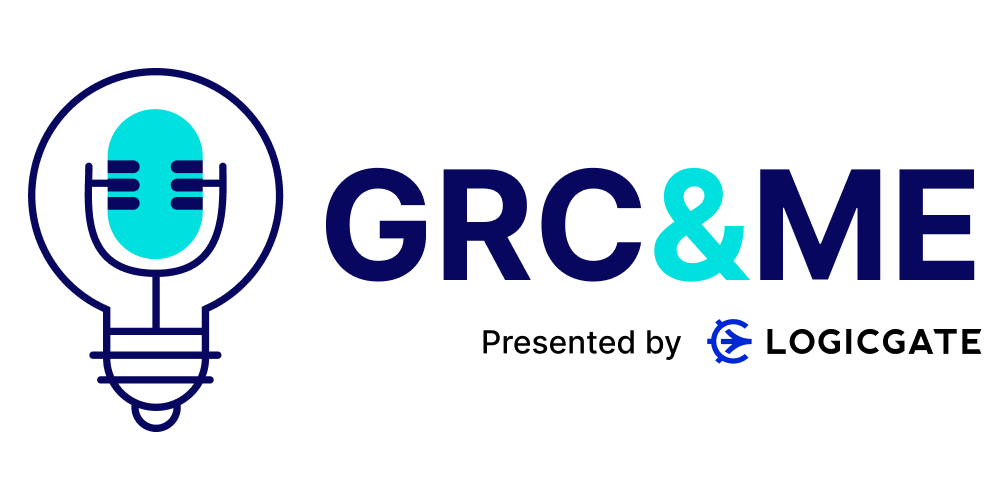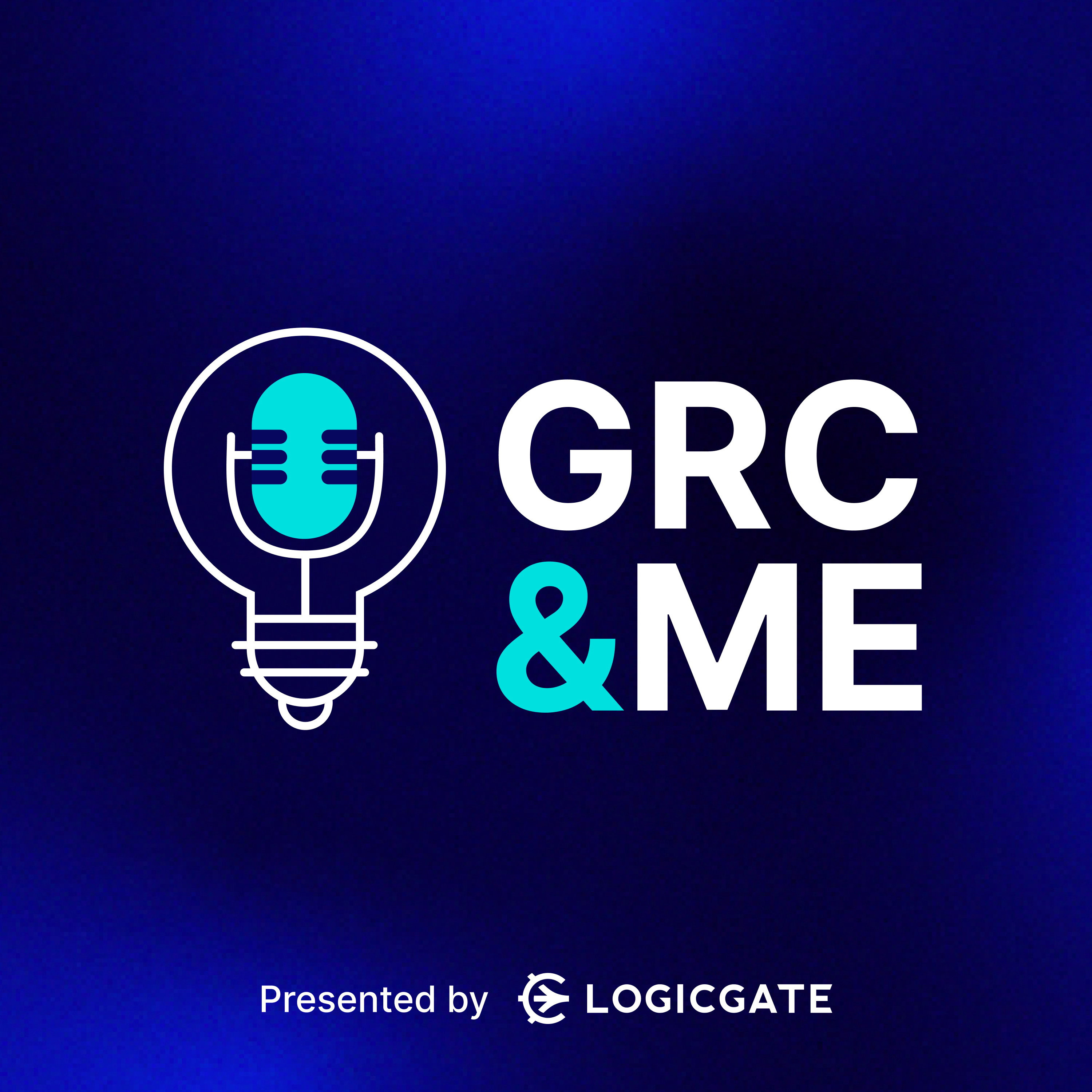Has the ‘Great Resignation’ Created the ‘Great Reflection’ for Organizations?
- 0.5
- 1
- 1.25
- 1.5
- 1.75
- 2
Megan Phee: Hi, I'm Megan Phee, and this is GRC& Me, where we interview industry thought leaders in governance, risk and compliance on hot topics, industry specific challenges, trends, and more. Learn about their methods, solutions, and outlook in the space.
Matt Kunkel: Hello everyone. And welcome to another episode of GRC& Me. I am your guest host today, Matt Kunkel, one of the co- founders and the CEO at LogicGate. And I have an amazing co- partner and guest with me, Caroline Werner. Caroline, thanks for joining.
Caroline Werner: Super excited to be here. Thanks, Matt.
Matt Kunkel: So Caroline is our first ever chief people officer at LogicGate, and really excited for her to have joined the organization about six months ago, for a whole host of reasons. First and foremost, is that she's so, so excited about people and culture and how that really can change the trajectory in organizations. So Caroline, talk to us a little bit about just your background and where you come from.
Caroline Werner: Yeah, thanks Matt. My background is a mix of started out in the general business operations, really found my love for what it takes to run an organization and how integral all the different people and roles and pieces and parts are. That was with Hyatt Hotels. And from there, fell into HR. I started on my path in various roles and companies, more public, larger companies, but in different industries, in the office supply products industry and comp and benefits roles, and then moving into high different struggles, running global operations and the people function. And then lastly, at Korn Ferry, where I led as a SVP of HR for the organization and different initiatives and projects, helping to grow and scale the business.
Matt Kunkel: Awesome. Well excited to have you here at LogicGate and excited to have you on the podcast. So we're going to talk about something that I think is on a lot of executive team and CEO's minds these days which is the concept of the great resignation and different aspects of just the talent landscape that we see out there today. But first I want to kind of set the stage of why is this even important at all? And to me it's important because any company out there, I don't care what you do, the best and most important asset that you have is your people. Your people drive your culture and culture to me is the biggest strategic differentiator that any company can have out there. So it's really important to understand what our people want, that then can help our customers and help our product and ultimately help us as an organization win. So I'm going to ask you a couple questions and just love your perspective on that from your time in industry. First and foremost, why are we in this current situation? Why are we in this quote unquote, great resignation that's out there?
Caroline Werner: Yeah. So I read an article recently, so I take no credit for it, but I guess I will for this podcast, and that was sort of a reframing of the great resignation to the great reinvention. It spins a little bit more into the positive and the possibilities of it, but I think anytime you go through a crisis or a big change, whether that's yourself or in this case, the world, which was COVID, it's an opportunity to reevaluate. What matters to me? What do I care about? What am I motivated by? What am I willing to tolerate? And so through the COVID experience, I think everybody paused to reflect on that, we were forced to, although I say never waste a good crisis. It's an opportunity to reflect and look at what we should change and do differently. On the flip side for companies, same thing. Suddenly they were faced with why are people making these decisions or what matters to my people? How do I understand what matters and sort of opening up all of the possibilities, but also some challenges around talent and what the drivers are, and honestly flipped everything on its head.
Matt Kunkel: I couldn't agree more. I think what COVID has done is opened up a world of possibilities to the talent market out there. And another question I have is what do we as leaders do about the situation that we find ourselves in? How do we protect our biggest asset and talent as opposed to walking out the door and going somewhere else?
Caroline Werner: Yeah. And it's interesting you talk about existing talent. A lot of the great resignation and the war on talent has been about how do we attract and get people and all the kind of ridiculousness that's going on from a comp or throwing crazy benefits out or whatever it is. But focusing on our existing employees is equally, if not more important as well, and kind of taking the safe steps as we think about how do we attract, how do we retain and engage. Those things can be overwhelming to leaders and managers. But I think on the positive, they have a way of directly impacting because if we listen, some of this seems simple, but if we listen to our people, we can take what they're talking about, what matters to them, what their priorities are, and then translate that to our priorities as an organization and different things matter to different people and they shift. But honestly, listening is the biggest thing to understand what do our people care about? Do they care about time off? Do they care about career paths? Do they care about their compensation? Is it all of the above? But to help then take those to where are we going to get the biggest bang for our buck in all aspects in our people priorities?
Matt Kunkel: Yeah, I think another big thing is as an organization making a commitment to investing in your managers or people leaders. I read an article recently that while compensation is up there, it's not the biggest thing that keeps people. This is not 30 years ago when people worked at big companies and they're like," I'm a Ford person so I'm going to work at Ford forever and it's the brand that I'm behind." I don't think people are really loyal to brands anymore. People are loyal to their managers and their people leaders and people are loyal to the relationships that they built within organizations. And we talk about that a lot here at LogicGate is building relationships, building relationships with our customers, but also building relationships with people on our teams and people within other business units at the organization because people don't want to leave other people that they like to work with. Life is too short to work with people that you don't like to work with. And if you find some great people that you really connect with, and especially if you have a manager that's such an advocate for you, it keeps them at the organization for so much longer. So another question that I've got is is this kind of the new normal, or what are we going to see for the foreseeable future?
Caroline Werner: Yeah, I think that's on top of everyone's minds, if we had a crystal ball, we'd be the big winners. But I honestly think the new normal is this sort of state of constant evaluation, reflection, being agile, being flexible, like the new normal is almost understanding that nothing is going to ever be the same and what works today might not work tomorrow, so do we put things in place and we able to put things in place that we can shift and adjust. Doesn't mean you have to change every single thing and flip that on its head and appeal to everybody. But I think being flexible is more than half the battle and understanding that we have to be able to, whether it's COVID shut down again, God forbid, quickly adjusting to working differently or shifting priorities again, or adjusting for what people's needs are and sort of living in the uncomfortable, being with the uncomfortable and having an organization that's open to change and feedback and adjusting because I don't know that anything's going to be the same ever again.
Matt Kunkel: Yeah, I couldn't agree with you more on that. I think that's the big thing is just being able to, things are not going to be the way that they were pre- COVID. I think too many people have figured out how to work in a remote setting and have changed their lifestyle. Two years is a long time. So they're now embedded in a whole new lifestyle that they don't want to give up, or if they are forced to give up, they will find that lifestyle somewhere else from a work balance at a different company. You have to be able to, I believe, meet your employees where they want to be met and different employees want to be met in different ways. You have to be able to, I think, adjust and have not just one," Hey, this is how we work," but multiple different aspects of how you work and show up.
Caroline Werner: Yeah, you mentioned something earlier that resonates in this concept of creating connections, which we're all human beings at the end of the day and the way we live our lives naturally is through our relationships and connections with people, as well as how we work. I think that's a really important piece too for the organization to focus on, particularly leaders and managers who are generally the ones having the most interaction and day to day interactions and opportunity to observe and experience the teams and our employees and the masses. In some ways it's like too easy to quit. So you can just close up your laptop and you're done. So how do we create the stickiness, the connections to each other, both in the hybrid work, which I think is here to stay. I think that's just table stakes at this point, being flexible and having flexible work environment, but how do we keep that connectivity to each other and the broader mission of the company?
Matt Kunkel: Yeah. Couldn't agree more. And I agree with you, the hybrid is here, especially in SaaS. Like to me hybrid is table stakes from if you're in a SaaS business at this stage.
Caroline Werner: Yeah.
Matt Kunkel: Okay. And that actually is a great segue into my last question for you, which is I think more and more organizations as we kind of get over this COVID hump that we're in are starting to go back in some way, shape or form into their headquarters and into their offices around the US and around the globe. How can we make sure, and I think at the same time, a lot of organizations have hired outside of places where they have core offices. So they have a lot of remote people. How can we make sure that we engage remote folks and make sure that they feel the same engagement as folks that go into a headquarters and an office?
Caroline Werner: It's funny, I think in some ways, these things are daunting. When you said it's been two years, sometimes it's hard to believe. It feels like 10 and feels like five minutes. But I'm reminded by, I was talking to someone I used to work with who has always been remote, who sort of laughs at how much effort is being spent on this. And I share that just the perspective of this has been a way of working for a long time so giving ourselves a little bit of grace and room to, you know, we don't have to get everything perfect. There are challenges with it certainly. Lots of people have worked remotely. I think the difference is also thinking about how was your organization before? In the case of LogicGate, we've talked about this. Many of us were in Chicago and physically based here. So when you think about the shift on top of remote, but also now everyone's not necessarily here and we're in many different places. So being more mindful and having intention when we think about being inclusive, be driving effectiveness. When we think of everything from how do we run meetings to how do we build teams to how do we communicate and cascade information to each other and being mindful is sort of half the battle. On top of that, everybody learns differently, hears differently, reads differently. I think again, giving ourselves a little bit of grace, because there's a lot of pressure to get it right, and we have to be perfect. And you want to be inclusive to people at home, but you want to build excitement around coming back to the office, so balancing all of that. And again, back to what our overarching theme is being open to flex and change as we go.
Matt Kunkel: Yeah. I couldn't agree with you more on that. I think you hit two great points. One is that it's about being outcomes first. It's not about being in the office for a nine to five, five days a week and showing face time. It's about what did you commit to do and did you get that done? And it really doesn't matter if you're in Topeka, Kansas, in the Chicago headquarters, if you're in London, if you're in Singapore, it doesn't matter. It's about, I committed to this and I got it done and I think most organizations will move or they should be moving to an outcomes first based culture. Well, Caroline, that was amazing. Thank you so much and appreciate having you on. And for GRC& Me, I am Matt Kunkel, and remember to risk with confidence.
DESCRIPTION
It seems like everywhere you look there’s a new article about the “Great Resignation” and the challenges with keeping talent. Businesses, regardless of industry, are being impacted. So where do we go from here? In this episode of GRC & Me, LogicGate’s CEO, Matt Kunkel, and new Chief People Officer, Caroline Werner, chat about the reality of the current talent landscape, what they’ve learned from the last few years, and how they’re adjusting their strategies to help adapt.
Today's Guests

Matt Kunkel


